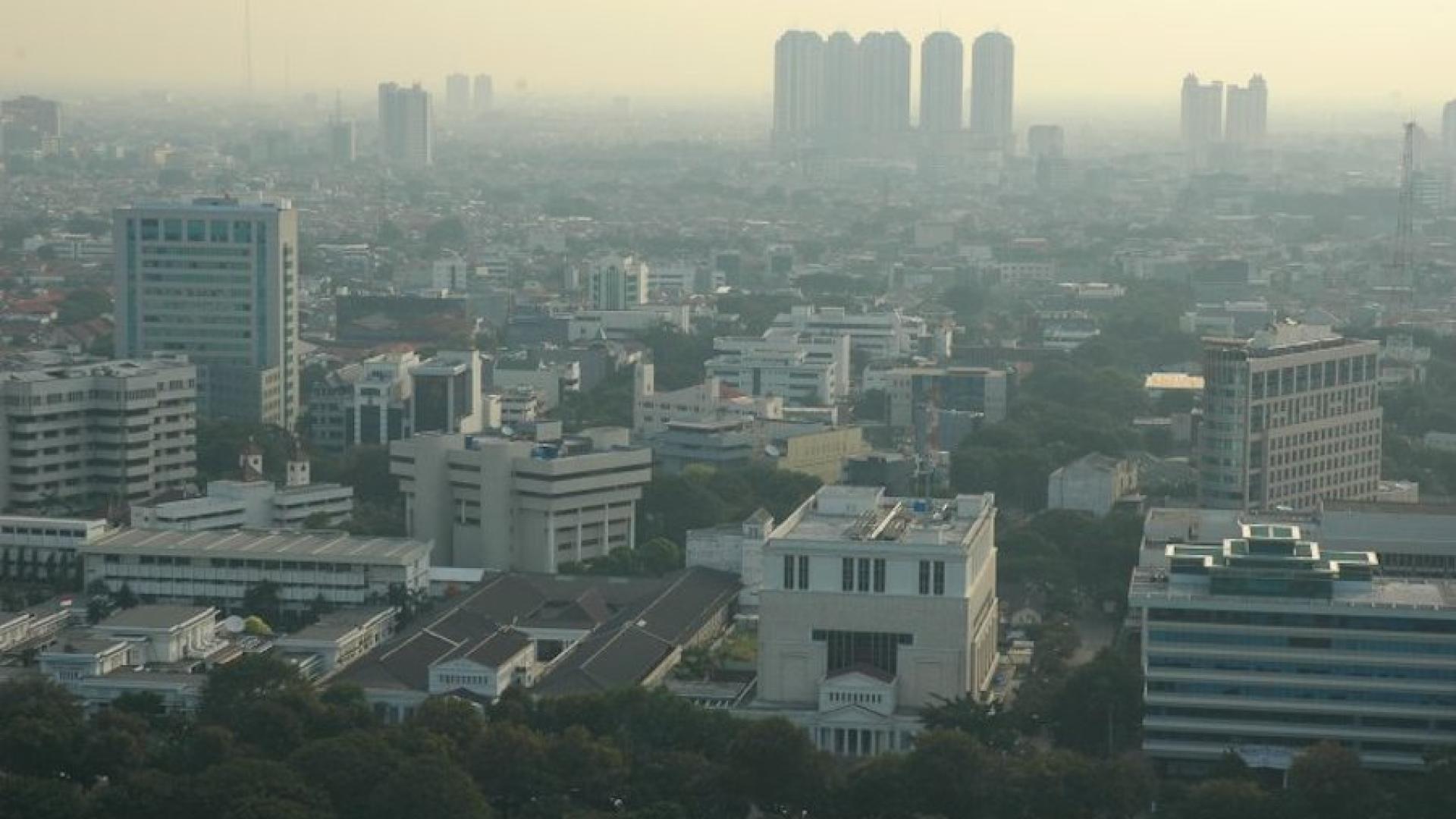Sharing lessons on Environmental Democracy with the Parliament of Indonesia

The Indonesian Parliament’s Inter-Parliamentary Cooperation Bureau (BKSAP) list climate change as one of its priorities. Its members sit on committees in parliament concerned with areas that are vital to addressing the climate emergency, including the agriculture, forestry and environment; energy, mineral resources, and research and technology; banking and economy; and international committees.
Following the recent launch of the WFD Environmental Democracy Initiative (WEDI), WFD Indonesia worked with the BKSAP to bring together a range of experts as well as members and staff of the Indonesian parliament to discuss the environmental protection agenda against the background of the COVID-19 emergency. The discussions were held in Bali in partnership with the Institute for Peace and Democracy (IPD) and Warmadewa University.
The discussion commenced with opening remarks from Chair of the Inter-Parliamentary Cooperation Bureau Hon. Fadli Zon and Bali Governor Hon. I Wayan Koster who highlighted the untapped potential of Indonesia’s biodiversity and the need to strike a balance between economic recovery agenda amid the COVID-19 pandemic and environmental protection.
Speaking at the event, UK COP26 Envoy Dr John Murton underlined his belief that: environmental protection is not a hindrance to economic growth but a strength that can increase the benefits that citizens reap from improvements to the economy.
“Net Zero targets will be good for the Indonesian economy and it will help attract investment into communities… to provide clean, renewable energies in a way that creates jobs and is good not only for the economy, but for the environment”.
The first session, chaired by the Executive Director of the IPD, Dr I Ketut Putra Erawan, shed light on the strategies and policies that could restore Indonesia’s economic growth amid the COVID-19 pandemic without inflicting setbacks to the efforts of achieving the country’s Nationally Determined Contributions (NDCs) target of transitioning to a low carbon and climate resilient future.
Dr. Kurnya Roesad, Senior Economist at the Global Green Growth Institute (GGGI), and Eija Kiiskinen, Senior Adviser to the Environmental Director of the Organisation for Economic Co-operation and Development (OECD) and coordinator of the OECD’s green growth policy review (GGPR) on Indonesia, shared their findings about and recommendations for how Indonesia’s green growth agenda should move ahead factoring in the recent situation due to the COVID-19 pandemic.
Famed Bali-based architect Popo Danes highlighted that economic growth can go side by side with protecting the environment by sharing his stories of designing large–scale infrastructure projects in Indonesia, and elsewhere, without harming the environment.
Huge changes to all levels of society, politics and business are needed to avoid the most devastating effects of climate change and environmental degradation. To achieve this, we need transparent, participatory democracy in which the public is able to voice their concerns and influence policy.
The experiences of the UK Climate Assembly, a citizens assembly convened by the House of Commons to discuss how the UK can reach net zero greenhouse gas emissions by 2050, offer some insights into citizen participation in environmental decision-making.
This was the focus of the second session, chaired by WFD Indonesia’s Country Representative, Agus Wijayanto which featured MySociety.org CEO, Mark Cridge, and Dr I Ketut Putra Erawan on the panel.
As Cridge explained, the UK citizen assembly on climate change has created meaningful impact in bringing citizens’ voices to the forefront of policymaking through deliberative methods.
Meanwhile, Indonesia has its own experience of local practices of deliberative democracy – such as mini publics in Bali and other districts in Indonesia. Dr Erawan shared lessons from the challenges that local communities in Bali faced in maintaining their mini public forums and stressed how it is important to not only create a safe space for citizen engagement in discussing environmental policies and strategies, but also to ensure that the space is inclusive and provides equal opportunities for individuals and communities to contribute.
Participants in the session were able to discuss the feasibility of the adoption of such an initiative by the Indonesian Parliament. Closing the discussions, Hon. Fadli Zon noted that the findings, experiences, and feedback shared provided much–needed insights for the parliament to better understand the complexity of environmental policies and strategies in Indonesia.